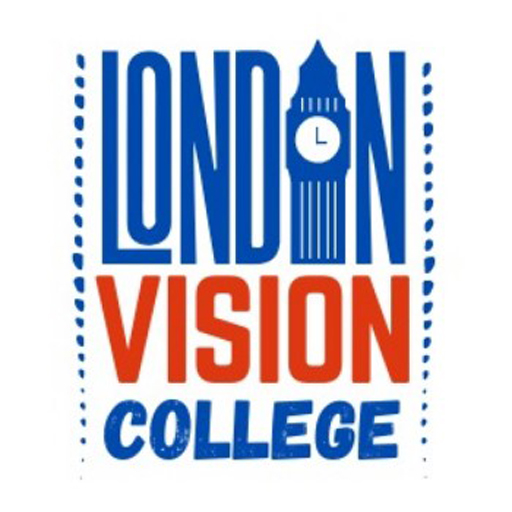
About The Course
Take the first step towards an exciting career in the hospitality industry with our online hotel management course. Our online hospitality management program offers a level 4/5 240-credit course designed to equip students with the skills necessary to become competent professionals in the hospitality industry. During the hotel management course, students will receive assistance from tutors, participate in webinars, engage in a social learning forum, and access supplementary materials to aid in their diploma completion. To learn more about the resources available to students, please visit our student resources page. Each module of the course comprises 40 guided learning hours of material, along with an additional 30-50 hours of optional materials that include recommended exercises, readings, online resources, and self-testing exercises. Upon successfully passing the online assessments and written assignments, students will receive a Qualifi diploma and can even pursue a bachelor's degree.
Course Details
Food and Beverage Operations
- Students will gain an understanding of food and beverage operations, including practical aspects of production and service.
Food Safety and Hygiene
- Students will understand the importance of complying with regulations and effectively managing procedures for ensuring food safety.
Hospitality and Hotel Housekeeping
- Students will understand the role of the housekeeping department within a hospitality setting and its impact on the operation.
Customer Service
- Students will understand the importance of customer-focused hospitality and gain skills to deliver excellent customer service.
Front Office Operations
- Students will understand the role of the front office department within a hospitality setting and its impact on the overall operation.
Accounting and Cost Control
- Students will understand the principles of costing within hospitality, the contents of key financial statements used, and the basic accounting techniques used to produce and analyze them.
Global Tourism and Hospitality
- Students will understand the size and scope of the global tourism and hospitality industry, the influences that affect it, and the growth of its brands within international markets.
Marketing
- Students will understand the key principles of the marketing concept, relate the role of the marketing mix to the hospitality industry, and devise a promotional campaign.
Employee Engagement
- Students will understand the concept of employee engagement, its key components, and how it can impact overall business performance.
Training and CPD
- Students will be able to identify the need for training in a hospitality setting, understand how individuals learn, and plan, design, deliver and evaluate the effectiveness of a training session or program. They will also be introduced to the concept of Continuous Professional Development and its relevance in a hospitality setting.
- Food and beverage supply chain management: Students will understand supply chain systems and procedures, and how organizations use these to procure, produce and prepare food and beverages within the hospitality industry, both domestically and globally. This module explains the significance of supply chain management for efficient operation and gaining a competitive advantage in an organization.
- Quality management: The module enables students to comprehend the concept of quality and quality management and its application in the hospitality industry. Students will analyze, evaluate, and implement a quality management system in a hospitality organization.
- Events and conference management: This unit covers the operational aspects of organizing successful events and conferences. A variety of events are discussed in this module, along with the processes and considerations involved.
- Customer relations management: Students will understand the importance of Customer Relationship Management (CRM) to hospitality organizations and recognize the necessary processes to ensure its effectiveness.
- Managing people: Students are able to gain an understanding of the key principles of management behavior and a range of management styles, roles, responsibilities, characteristics, and skills. Students will be able to understand the effectiveness of different organization structures by studying the design and culture within a hospitality setting.
- The module on “Current Issues in HRM” aims to provide students with an understanding of the essential principles of Human Resource Management (HRM) and the challenges faced by HR managers in their roles and responsibilities. Students will develop an understanding of how current legislation affects the HR function in Hotel and Hospitality Management.
- In the revenue management unit, students will learn about the fundamental concepts of revenue management and how they impact the pricing of hotel rooms. Students will gain the ability to apply yield management techniques in a hotel setting and establish an overbooking policy.
- Corporate social responsibility: Corporate social responsibility: Students will be able to understand key principles of Corporate Social Responsibility (CSR) and sustainable development. In this module, students will gain an understanding of the influence of hotels on social, cultural, and environmental aspects, and explore the ways in which the hotel industry can contribute to sustainability by adopting sustainable practices and policies.
- Contemporary issues: Students will develop an understanding of the present and potential contemporary issues that impact the hospitality industry and their consequences.. This unit will demonstrate the need for organizations to be flexible and to adapt to rapidly changing environments and customer demands.
- Business planning: Students will understand how to create a business plan for a hotel or hospitality organization. Students will gain an understanding of their business’s current market position, evaluate its performance, and identify potential opportunities for growth.
The course requirements for the Qualifi level 4/5 hotel and hospitality program includes 10 modules and 4 written assignments for each level. Upon finishing the modules, students will have access to the assignments, which are typically between 2,000-3,000 words each. Additional support is provided for students via the “Tutor” section of the learning platform.
The assignment unit titles for the level 4 course are:
- Sustainability in tourism and hospitality management
- Operations management in tourism and resort operations
- Management of visitor attractions
- Employability and development in the hospitality industry
More information on the unit titles can be found here: https://qualifi.net/qualifi-level-4-diploma-in-hospitality-and-tourism-management/
The assignment unit titles for the level 5 course are:
- Tourism destination management
- Entrepreneurship in tourism and hospitality management
- Cultural tourism management
- Research project
More information on the unit titles can be found here: https://qualifi.net/qualifi-level-5-diploma-in-hospitality-and-tourism-management/
Upon completing their diploma in hospitality management, students will acquire various skills including food and beverage supply chain management, accounting and cost control, and marketing in hotel and leisure. With these skills, graduates can pursue diverse career paths in hotels, restaurants, resorts, and other associated properties within the hospitality industry. |
The fee for enrolling onto the level 4 and level 5 courses together is £5200. Alternatively students can enrol onto a single level (level 4 or 5) for £3800 each.
Students can make payment using one of the following methods:
- Credit or debit card
- Bank transfer
- Interest free monthly instalments
- Paypal
- Western Union
- ELCAS funding
- All course material, including online modules and past exam papers.
- Personal tutor support with 1-2-1 Meet sessions
- Dedicated student support
- Access to an online social learning forum
- Assignment marking and feedback
- Free CV writing help on completion of the course.
- Free student mail account and cloud storage worth £180
To register for a Level 4 course, you must be 18 years old and have a complete secondary education. You must complete Level 4 before registering for Level 5.
